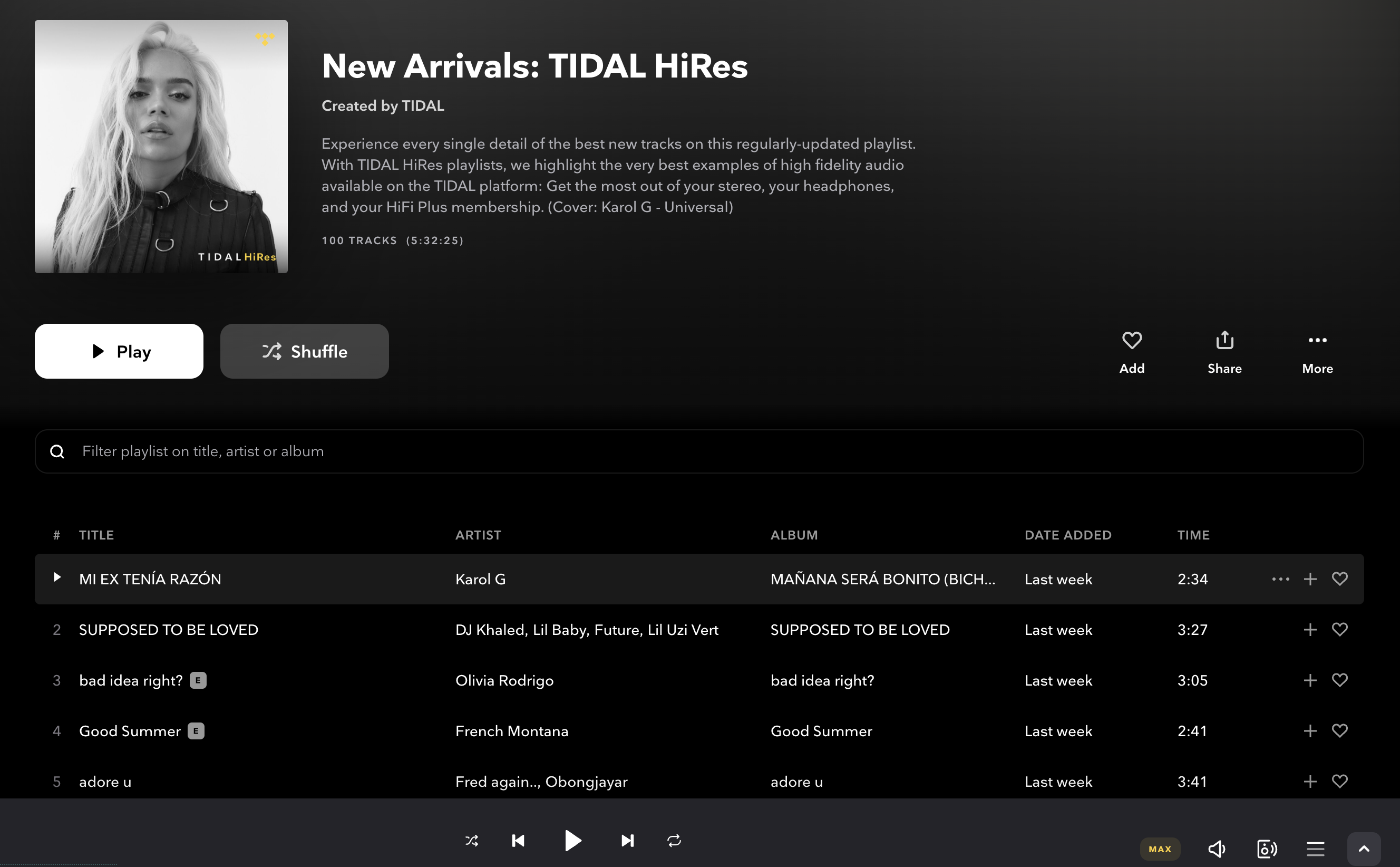Tidal confirms FLAC and MQA hi-res playback preference
Which streams do you get if you own MQA kit?

Tidal has confirmed to What Hi-Fi? the streaming playback hierarchy now that hi-res FLAC files have been added to its library.
When Tidal CEO Jesse Dorogusker announced in April that the service would add hi-res FLAC streaming to the existing hi-res MQA streaming catalogue, he stated that Tidal was “choosing FLAC as our preferred format for high-resolution audio” over its MQA-powered Masters. It makes sense, considering FLAC is an open-source format whereas MQA requires specific hardware decoding to unlock its optimum quality and is therefore not as accessible. Perhaps unsurprisingly, that preference for FLAC (or 'HiRes FLAC', as it's being called) is now being reflected in the service's playback priority.
Currently, HiRes FLAC (FLAC streams with a 24-bit/48-192kHz bitrate) is supported by Tidal's iOS, Android, desktop and web applications, with support for Tidal Connect, Chromecast and Sonos due to follow later this year. The playback hierarchy through these supported applications is as follows: HiRes FLAC > MQA > standard FLAC > ACC. That is also the case if an MQA-supporting DAC is used within the audio set-up so long as Tidal is in exclusive mode (whereby Tidal itself determines the output preference).
As Tidal Connect supports MQA, the playback hierarchy for now is MQA if available, or standard FLAC if not available. Presumably, HiRes FLAC will be the preference for Connect playback when support is eventually added. The Sonos and Chromecast platforms do not support MQA and so will only support hi-res streaming via FLAC.
Earlier this month, Tidal initiated the rollout of its HiRes FLAC library, delivering six million hi-res FLAC streams to subscribers of its HiFi Plus tier via the majority of its applications.
MORE:
MQA has gone into administration: what does this mean for Tidal and supported products?
Get the What Hi-Fi? Newsletter
The latest hi-fi, home cinema and tech news, reviews, buying advice and deals, direct to your inbox.
Best music streaming services 2023: free streams to hi-res audio
Qobuz is slashing the price of over 10,000 albums – and you don't even need to be a subscriber to benefit
Becky is the managing editor of What Hi-Fi? and, since her recent move to Melbourne, also the editor of the brand's sister magazines Down Under – Australian Hi-Fi and Audio Esoterica. During her 11+ years in the hi-fi industry, she has reviewed all manner of audio gear, from budget amplifiers to high-end speakers, and particularly specialises in headphones and head-fi devices. In her spare time, Becky can often be found running, watching Liverpool FC and horror movies, and hunting for gluten-free cake.
-
pef1960 No mention of ALAC; do Tidal not care about Apple-using customers? Qobuz is a better service anyway, particularly for classical music.Reply -
hfvienna WhatHifi or at least Becky is just taking the Tidal wording, without mentioning, that even a MQA file through a "non MQA DAC" sounds better than FLAC HiRes or whatever. For audiophiles TIDAL is history. But good news could be on the way.Reply -
Rodolfo Interesting: WHF seems to mock Tidal's "hi-res" FLAC claim with "(or 'HiRes FLAC', as it's being called)", huh?Reply
It's lossless, and like other forms of lossless, such as WMA lossless, the essence and full principle is that lossless is lossless, regardless, no? Can there be a superior/inferior form of FLAC? Does Tidal claim anything specific -superior ripping, I suppose, or is it being purposely vague or silent -just marketing it as non-plain, non/extra-ordinary FLAC, 'trust us'?? -
BigH Why do WHF keep awarding Tidal? Qobuz is better sound quality and much cheaper, less than £11 pm for HR. They also don't keep pushing RAP and R&B, at me.Reply
MQA has gone, that is the good news.

